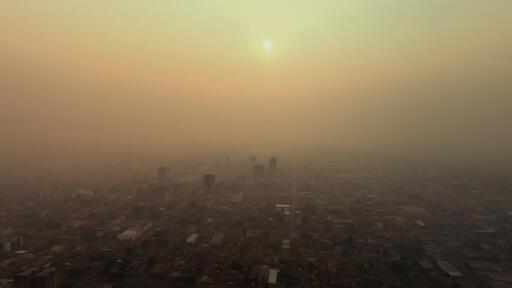A new Greenpeace International report, Toxic Skies: How Agribusiness is Choking the Amazon, reveals how fires linked to industrial agriculture are turning the forest’s air toxic during the dry season. The findings are a stark warning that the Amazon’s crisis is not only about trees. It is about the air millions of people breathe, and the health of our shared planet.
archived (Wayback Machine)



Not just ranching, farming too (particularly soy). With the ongoing tariff war and China’s demand for soy shifting away from the USA, this is poised to become an even bigger issue.
Another myth: the Amazon soil is rich and fertile. In reality, the forest fertilizes itself. When it is cleared, the mostly sandy soil gets depleted very fast, prompting more fires to clear new land.
Yes, soy/maize/etc is the second leading driver, and who is eating all of that soy?
Some parts are sandy, especially in the east and around the white-sand rivers and varillales, but much of the rainforest is lateritic clay (ultisols and oxisols). That’s true of equatorial rainforests in general. It’s not so much that the soil gets depleted; the soil is not very fertile in the first place, as the nutrients are held in the vegetation. When the vegetation is slashed and burnt, one heavy rain can wash away the fertile ashes.
Who is eating it? We’re drinking it. Soy is mostly grown for oil. The solids are used to enrich feed because it’s a protein rich, cheap, by-product. But there are many alternatives for feed. No one is planting soy for pasture.
My point was that the vast majority of soya is used as feed for cows, pigs, chickens, and other enslaved animals, so even though those plantations are not pasture land, they serve essentially the same purpose.
Look at figure 2. While, by weight, only a fifth of the soybean is converted into oil, that’s where the absolute majority of money is made in oil. The defatted cake is a byproduct. It’s too cheap to justify planting soy.
To extract oil from soy, you need a solvent like hexane. Hexane is both toxic and expensive, so a big part of an oil extraction plant is hexane recovery and purification. Hexane boils at around 70C, so the cheapest way to recover hexane from the cake is to steam it. This also cooks the cake, browning it. The toasted cake has its proteins denatured in the process, which is terrible for their nutritional effect. But it also breaks the oligosaccharides down, which is good, because it can be deadly to animals, unlike the fattening sugars they turn into.
Key points: the cheapest way to make oil creates feed, whether it’s used or not. Instead of paying to send it to landfill, companies sell that incredibly cheap so that they avoid that cost, maybe even recoup some of the steam generation cost.
Let me put it this way: if overnight people weren’t eating oil, nobody would plant soy, because the money made selling it just for feed wouldn’t cover the costs to plant it.
Unfortunately I don’t have a scientific citation, but I do have 10 years of experience in soy processing, so… trust me bro?
That’s an excellent point. I’m reminded of when Doug Graham made a similar argument that purchasing vegetable oils and grass seeds at the normal retail price subsidises the animal cruelty industry. There are many reasons to say no to these things.